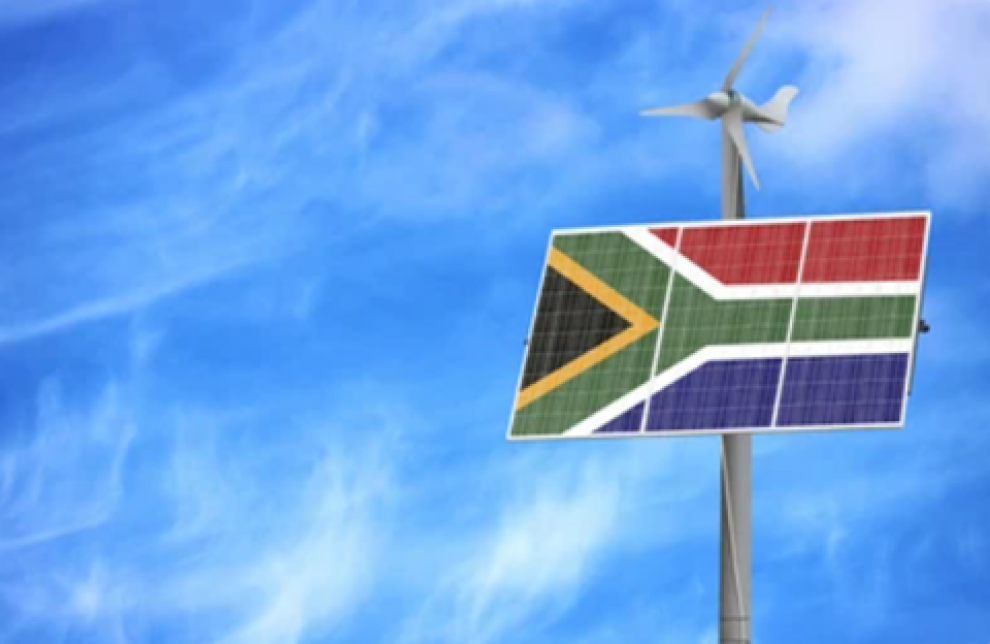What is MOIN South Africa?

MOIN South Africa is a dedicated chapter of the Mission-Oriented Innovation Network which works with policy makers and academics to explore how mission-oriented innovation can tackle grand challenges in the South African context; with a particular focus on mobilising a just, green energy transition.
Launched in 2021, with the support of The Rockefeller Foundation, and working with a situated academic and practitioner network in South Africa, the programme will provide research evidence on windows of green opportunities in the country. Alongside this, and in collaboration with the South African National School of Government, the programme also provides Executive Education courses to enable state capacity building within the South African public sector.
- Publications
Transforming the system of SOEs in South Africa: A proposal for a mission-oriented state holding company- Mazzucato, M. & Gasperin, S. (2023) UCL Institute for Innovation and Public Purpose, Policy Brief series (IIPP PB 27). Available at: https://www.ucl.ac.uk/bartlett/public-purpose/pb-27
This policy brief explores the potential of a mission-oriented state holding company. Moving from the concept of 'system of state-owned enterprises' and its different configurations, the paper illustrates the historical model of Italy's former state holding company IRI in comparison with the state ownership model currently in place in Italy. The brief presents the rationale for a state holding company and its economic opportunities, if properly structured as an entrepreneurial and mission-oriented organisation. Finally, it concludes with the presentation of an organisational and governance model that could inspire the current design process for South Africa's state-holding company.
How can South Africa advance a new energy paradigm? A mission-oriented approach to megaprojects - Andreoni, A., Creamer, K., Mazzucato, M and Steyn, G. (2022) UCL Institute for Innovation and Public Purpose, Working Paper Series (No. WP 2022/03). See also a link to the journal article in the Oxford Review of Economic Policy.
Green transition is a ‘wicked’ problem in that it is complex, systemic, interconnected, and urgent. In this paper we advance a ‘mission-oriented’ approach to reconceptualise energy megaprojects within a systemic, cross-sectoral and challenge driven policy framework for energy transition.
Building state capacities and dynamic capabilities to drive social and economic development: The case of South Africa. Mazzucato, M., Qobo, M. and Kattel, R. (2021) UCL Institute for Innovation and Public Purpose, Working Paper Series (IIPP WP 2021/09).
South Africa has not lacked policies, it has lacked dynamic capabilities inside the public sector to implement those policies. This paper tackles this question head on, beginning with a different notion of the state—not just a market fixer but also a market co-creator and shaper. We focus on three inter-related areas: the dynamic capabilities needed to improve implementation of chosen strategic missions and related programmes; innovation in public service; and the idea of a developmental state whose aim is to achieve both greater efficiencies and equity outcomes.- Related News Articles
Building state capacity for a just energy transition - Business Day South Africa
Africa faces huge food-supply obstacles – and time is running out - Daily Maverick South Africa
Opinion: A mission-oriented approach needed for South Africa’s energy transition - Engineering News South Africa
Renewable-energy transition ‘only true path to energy security’ - Engineering News South Africa
- Policy Engagement Highlights
In October 2019, IIPP Director Professor Mariana Mazzucato was appointed by South African President Cyril Ramaphosa to his Economic Advisory Council (PEAC). The Council was announced by President Ramaphosa in the State of the Nation Address to ensure greater coherence and consistency in the implementation of economic policy and ensure that government and society in general is better equipped to respond to changing economic circumstances. Mariana's participation focussed on two main workstreams: one on energy and the other on industrial policy, in addition to continuous work on state-capacity as a cross-cutting theme.
MOIN South Africa supporters

 Close
Close

